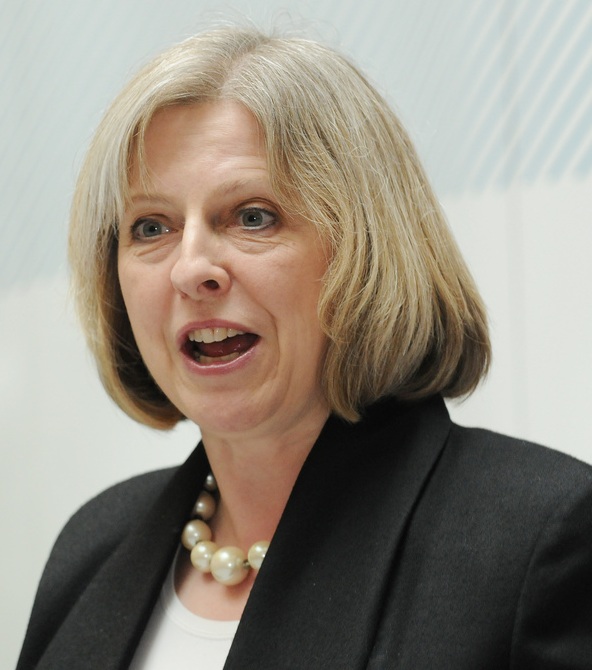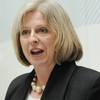clear

source:
No picture
Theresa May, the United kingdom's Prime Minister has called a snap general election, after repeatedly insisting that she had no intention of calling an election before 2020, when the next was due to be held. She has declared that she has called the election in order to strengthen her hand in negotiations with the EU over Britain's exit. She leads the Conservative Party which holds a small majority in the UK parliament. Te Conservative party currently enjoys a strong lead in opinion polls over the opposition Labour party.
Commentators in the UK have been suggesting for some time, since Theresa May became leader of the conservative party in te wake of the EU referendum results, that the Conservatives may call an early election. The Labour party, the next biggest party in parliament, have been struggling after disappointing results in the 2015 General Election and the election of a new and more left wing leader, Jeremy Corbyn, in September of that year.
The Conservative party experienced an unexpected opinion poll boost after their leader David Cameron resigned (having failed to secure a yes vote for remaining in the EU) and was replaced by Theresa May. lthough May campaigned against Brexit, she was careful not to be too associated with the Remain cause. As such, she is seen as a much more pro-Brexit Prime Minister.
As the Conservatives have risen in the polls, the largest pro-Brexit party - the UK Independence Party, or UKIP - have seen a substantial poll rating fall.
Meanwhile, the Labour Party are badly split, many MPs being opposed to the more radically left wing party leader, who is popular with grass roots supporters but unpopular with most swing voters.
Given all this many commentators see the election as pure opportunism, Theresa May taking advantage of a poll lead, based partly on the popularity of Brexit, in order to seure a large majority for the Conservative party in parliament.
However, it's also true that Britain will be leaving the EU in 2019, a year before the next scheduled General Election. If anything were to happen to reduce the Conservative's slim majority in pariament, the prime inister might struggle to pass legislation needed and has claimed this would hamper her negotiations of the final stages of Brexit, particularly as some parties, such as the liberal democrats, have argued that they woud obstruct any move by the UK to leave the European union. Securing a large majority for the conservatives now woud make such obstruton all but impossible.
 1
1
clear
 Andrew Tildesley
8 years, 2 months ago
Andrew Tildesley
8 years, 2 months ago
It seems the UK's Prime Minister Theresa May has decided to call a snap general election, despite having promised multiple times that she wouldn't, because she believes there is an overwhelming liklihood that this will keep the tories in power for longer - before a strong enough opposition could challenge them.
At the last election, the main parties were Labour, Lib Dems, and UKIP. However, as it stands at the moment, each of these parties have no real force behind them. Labour are in the worst state of unity they have been for quite some time with a leader, Jeremy Corbyn, which many within the party have tried to take down recently. UKIP have seriously quietened down since the last general election, and with article 50 having been triggered - their one main goal of leaving the EU is going ahead, leaving them with not much more to argue on. Then we have lib dems - they had a real growth in numbers of supporters, until they entered into a coalition government. Since then, they've never really managed to win back a huge potential audience - as they don't really trust them.
Now is the time for Tories to win even more of the electorates, because voters have lost faith in the other three at this weakened time.
 0
0
clear
Several MPs have claimed that the snap election has been called to prevent a looming expenses scandal. It has been reported that the UK’s Crown Prosecution Service is considering charges against about 30 Conservative ministers for breaching spending limits when it came to the 2015 general election. Any charges, it is thought, would have to be brought before the new general election, which is on the 8th June. This would give the CPS very little time to prepare the case against the ministers. By setting the date so early and doing this so suddenly, even though May has previously said that she wouldn’t, she is hoping that the case cannot be brought due to lack of time. However, the CPS has said that this is not necessarily the case, and that the cut off time for prosecutions varies. The specific allegations relate to Conservative activists who were sent to key seats, and whose expenses were included among a national campaign spend when they shoudl have been reported separately.
 0
0
clear
In the 2015 election, the Conservatives were victorious. Over time it became apparent that the party used underhand tactics in many of the areas where they were at risk of losing a representative. In those constitutencies, special attention was given to ensuring the result the party wanted, and young Tory activists were brought in to boost support for their party. Election rules specify that a party can only spend £15,000 campaigning in a given constituency. The money spent on transport, hotels, and entertainment for the activists took the sums involved higher than £15,000 and the Conservative Party did its best to camouflage that spending. It's feasible that the 2015 election was won by the Conservatives directly because of the illegal spending on the activities of young campaigners. The party has already received a record fine for the offence, and the decision to prosecute those involved must be made no later than early June. That provided Theresa May with a powerful incentive to call an election that would take place before the ensuing court cases, which could involve 29 Conservative MPs being put on trial for fraud. The potential damage to the party's reputation would be enough for it to quite possibly lose the next election were the results of those court cases be known beforehand.
 0
0
clear
 AdrianR
8 years, 2 months ago
AdrianR
8 years, 2 months ago
Theresa May is not the first political leader to have orchestrated a complete U-turn on major policies, nor will she be the last. Despite having stated there would be no early election on several occasions she has seen an opportunity to consolidate her own power; her motivation for going to the polls a mere two years into a five-year parliamentary term is down to party politics, stabilising the government line on Europe, and rounding on the perceived weakness of opposition to the Tories in England.
Brexit came about as a result of an internal squabble within the Conservatives, and was widely seen as that party's dominant centre-right faction (including former PM David Cameron, former Chancellor George Osborne and, ironically, former Home Secretary Theresa May) calling the bluff of their Eurosceptic rightwingers. The result of the EU vote seemed to come as a surprise to everyone. The populist UKIP party certainly made the loudest celebratory noises, before it had time to sink in that their entire raison t'etre had just dissipated. May has given her main reason for the snap election as seeking to strengthen her hand during the Article 50 negotiations given the ongoing arguments about the terms of the exit and the numerous dissenting voices in Parliament (the rightwing media's 'saboteurs.')
If the UK's future is uncertain May must accept some of the blame for this. After all, she was a Remainer who is now steamrollering ahead with such a major constitutional issue on the back of what was merely an 'advisory poll'. In addition, this policy is ignoring huge segments of the UK population, not least the majority of the voters in Scotland and Northern Ireland who chose to remain. The constitutional faultline between Scotland and England - so rudimentally plastered over during the 2014 independence referendum by Gordon Brown's vague 11th hour promises of more federalism - has never loomed so ominously for those Scots clinging to the Union. But it would seem that this is a minor consideration for May and her vision of making Britain great again.
 0
0
clear

